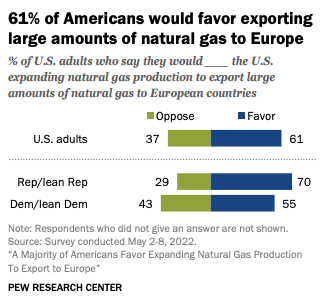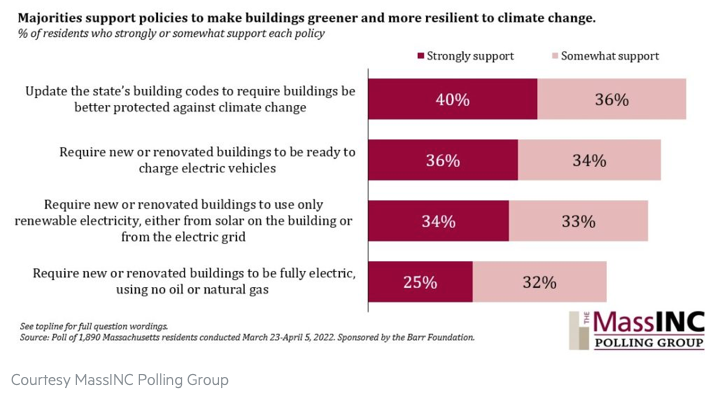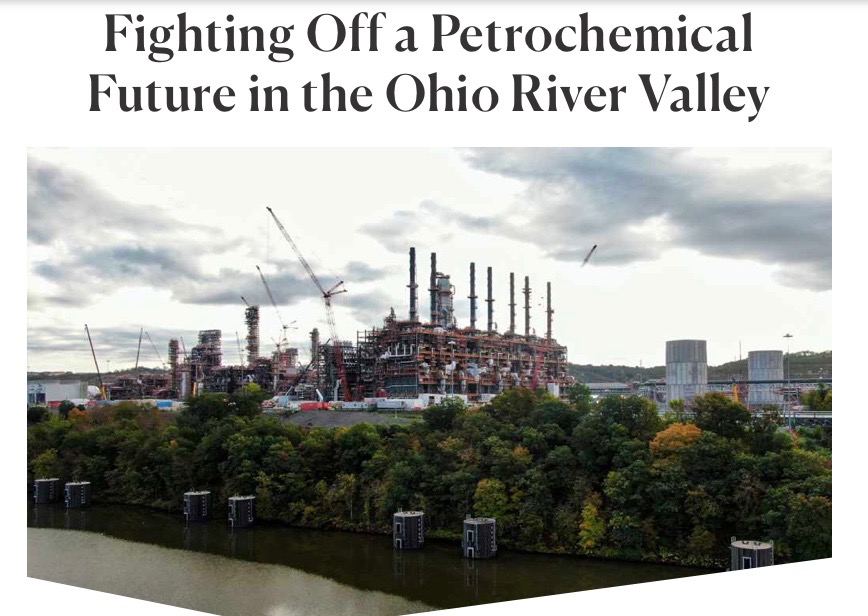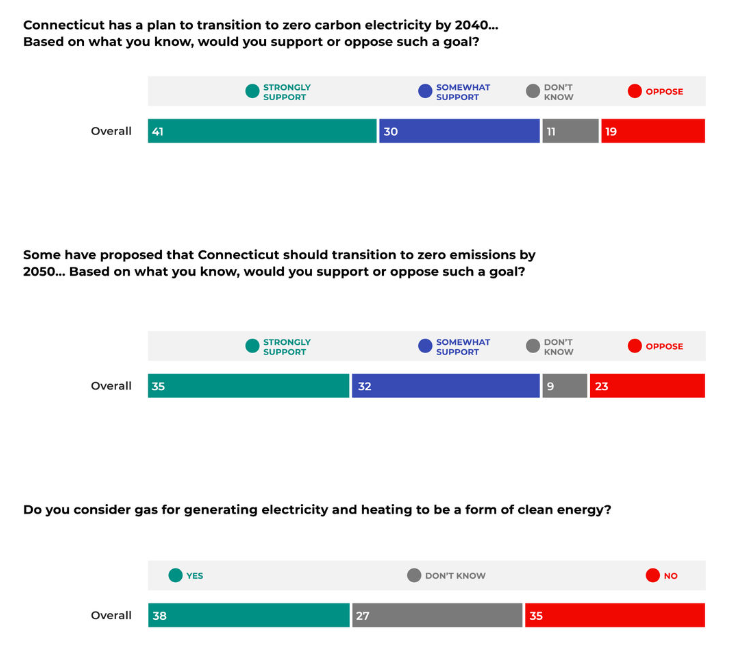Resources
Search below for resources covering the intersection of climate engagement, social science and data analytics.
RESULTS
Poll: Strong local and statewide support for Diablo Canyon Nuclear Power Plant
California voters lean toward keeping nuclear energy in the state’s power mix, while their support for natural gas has declined. The poll encouragingly finds that voters overwhelmingly approve of solar (91% approve, including 73% who say they “definitely” approve of it) and wind (81% approve, including 67% who “definitely” approve of it) being used as electricity sources for the state. A clear majority also approve of natural gas as an electricity source (71% approve), though with considerably less enthusiasm (40% “definitely” approve) than they feel about solar and wind. Californians are relatively more split in their feelings about nuclear power, but over half approve of it being included in the state’s energy mix (54% approve / 36% disapprove). The poll release also includes time-series trend data from 2013 for comparison. This trend data shows that, over the past nine years, Californians’ approval of nuclear (51% to 54%, +3) and solar (94% to 91%, -3) has barely budged, while there’s been a dip in approval of wind power (92% to 84%, -8) and a more sizable drop in approval of natural gas (89% to 71%, -18).
Poll: Massachusetts Voters Want More Clean Energy
A survey of 600 registered voters in Massachusetts showed voters remain concerned about climate change and optimistic about renewable energy.
Poll: A Majority of Americans Favor Expanding Natural Gas Production To Export to Europe
Americans continue to favor the development of renewable energy over expanding fossil fuels, but GOP support for fossil fuels is rising. Americans still widely prioritize developing alternative energy sources such as wind, solar, and hydrogen technology (67%) over expanding exploration and production of oil, coal and natural gas (32%). Americans favored clean energy over fossil fuels by a commanding 79%-20% margin during Trump’s last year in office (May 2020), but this margin dipped to 71%-27% soon after Biden took office (April 2020) and has continued to decline incrementally since (to 69%-30% in January 2022 and 67%-32% in this latest poll). Self-identified Republicans’ attitudes have shifted dramatically in the last two years: Republicans said they wanted to prioritize clean energy over fossil fuels by a 30-point margin in May 2020 (65%-35%), and now in May 2022 they say they want to prioritize fossil fuels over clean energy by an 18-point margin (59%-41%). This poll asked other questions, too.
Poll: Mass. residents concerned about climate change, but more worried about health care, education & jobs
Massachusetts residents are concerned about the impacts of climate change, with majorities saying that climate impacts like heat waves, coastal flooding and more powerful storms are already or very likely to hit the state in the next five years. However fewer than half of residents (47%) list climate change as a high priority -- it trails behind worries about health care, jobs and the economy, education, taxes, and fuel costs. The new survey suggests concern over climate change has declined since a similar poll in 2019 in which 54% of residents called climate change a high priority for state government.
Majorities of MA residents support climate and energy policies including:
- Update the states' building codes to require buildings to be better protected against climate change (76%)
- Require new or renvoated buildings to be ready to charge electric vehicles (70%)
- Require new or renovated buildings to be fully electric, using no oil or natural gas (57%)
Additional analysis and data visualizations in this article from WBUR.
Fighting Off a Petrochemical Future in the Ohio River Valley
Help people envision more just and sustainable systems. This article looks at efforts in southwest Pennsylvania to oppose plans for gas and plastics expansion in the region. Activists share their strategies, including raising public awareness about the dangers of fracking and plastic, tracking emissions themselves, and advocating for investments in more sustainable industries.
Environmental Polling Roundup - April 8th, 2022
This post includes climate and environment headlines, data points, and key takeaways from recent public polls - including new poll releases from Gallup about Americans’ environmental concerns and the impacts of extreme weather experiences on people’s climate views, and a new poll of voters’ attitudes about fossil fuels and clean energy in light of Russia’s invasion of Ukraine.
Environmental Polling Roundup - February 11th, 2022
This post includes climate and environment headlines, data points, and key takeaways from recent public polls - including a new international sustainability poll from POLITICO and Morning Consult, findings about the public’s reactions to different terms for methane gas, and state-level polls in Indiana, Maryland, and Wisconsin.
Poll: Maryland Voters Support 60% Cut in Greenhouse Gas Pollution and Mandate for All-Electric New Buildings Statewide
A majority of Maryland voters want strong action on climate change from the General Assembly this year, with clear majorities support cutting greenhouse gas emissions 60% by 2030. Voters also support a mandate that newly constructed buildings be powered by electric-only energy systems for heating, hot water, and cooking.
- 63% of voters support a core proposal to cut greenhouse gas pollution 60% by 2030 (below 2006 levels), in line with key scientific recommendations.
- A majority (53%) of all voters believe state legislators should mandate that all new buildings use electric-only energy systems for space-heating, hot water, appliances, and cook stoves. 78% of Democratic voters support the electrification policy.
- 72% of Democratic voters say they are more likely to vote for candidates who prioritize clean energy policies to combat climate change. Those numbers are different for Republicans, with nearly half (46%) saying clean energy would have no effect on their vote.
Poll: 60% of Americans say oil firms are to blame for the climate crisis
Oil and gas companies are unpopular, and most Americans say that oil and gas companies bear responsibility for causing climate change, especially after reading basic information on the topic. The survey found that major oil companies are underwater in their favorability among adults nationwide, including: BP (15% positive / 40% neutral / 33% negative); Shell (24% positive / 46% neutral / 26% negative); Exxon (22% positive / 43% neutral / 32% negative). By contrast, Americans tend to view other large corporations such as Apple (38% positive / 34% neutral / 28% negative), Amazon (50% positive / 21% neutral / 28% negative), Target (51% positive / 33% neutral / 15% negative), and Wal-Mart (43% positive / 27% neutral / 30% negative) more positively than negatively. Additionally, after reading information about how oil and gas companies misled the public about man made climate change, majorities of Americans agree with the following statements: the government and the public should hold oil and gas companies accountable today (62% agree); oil and gas companies should help pay to upgrade infrastructure so it can withstand the extreme weather events caused by climate change (60%); oil and gas companies should pay for the damages caused by extreme weather events attributed to climate change (56%).
Poll: Connecticut Voters are Ready for Bold Action on Climate and Clean Energy
A poll of 600 registered voters across Connecticut revealed a number of helpful data points about current voter attitudes towards clean energy and fossil fuels including:
Pagination
- Previous page
- Page 4
- Next page





